Top leaders of Frodebu political party, member of the Burundi main political opposition platform, say they still recognize Mkapa as the inter-Burundian dialogue Facilitator, while the platform rejects him arguing he is biased.
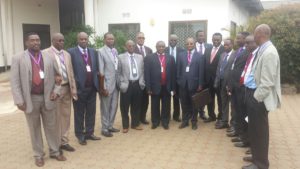
CNARED members in Arusha, Tanzania
Frodebu party, member of the main Burundi opposition platform CNARED that is based in Belgium, says it will accept invitations to inter-Burundian dialogue led by the Facilitator Mkapa, a decision that is contrary to the position of the platform.
On 9 December 2016, during his visit to Burundi, William B. Mkapa said President Nkurunziza’ s third term, the main cause of the present crisis, was legitimate and that those who doubted that legitimacy were “out of their minds”.
CNARED said by those words, Mkapa had disqualified himself as a Facilitator because he sided with the government of Bujumbura.
In a declaration issued on 4 January after a meeting of its board of directors held in Brussels, CNARED said “Mkapa has violated the basic principles of a Facilitator, namely impartiality and neutrality. CNARED will no more take part in negotiations or activities convened by him”.
Frédéric Bamvuginyumvira and Léonce Ngendakumana, respectively the president and the vice-president of Frodebu, recognize that Mkapa compromised on the principles of Facilitator, but say isolation cannot be the solution to the crisis currently troubling Burundians.
“Cure will only come from discussing with him”, says Ngendakumana. “Everyone else speculates on the meaning of Mkapa’s words. He is the only person who is uniquely placed to give the meaning of what he said. And that will only be possible by meeting him”, says Bamvuginyumvira.
They say consultations with him will provide the opportunity to discuss what’s wrong with the facilitation and try to sort the situation out.
Is Frodebu leaving CNARED?
Both Ngendakumana and Frédéric Bamvuginyumvira say that Frodebu diverging position does not mean the party is leaving CNARED. They say Frodebu has always privileged dialogue to solve disputes between Burundians.
But Jérémie Minani in charge of communication within CNARED says by responding positively to Mkapa’s invitations, Frodebu will have excluded itself from the platform. However, in due time the board of directors of CNARED will decide on whether to quick the party out.
Bamvuginyumvira responds saying Frodebu is the pillar of the Arusha Peace Agreement that CNARED is supposedly fighting to preserve. “What would remain of CNARED without Frodebu? he says
At the same time, Minani says that it would be surprising that a party whose members were in the frontline of the opposition against Nkurunziza’s third term and approved of the dismissal of the Facilitator in the meeting of 4 January could change their mind on that Facilitator in such a short time.
Former Tanzanian Mkapa was appointed as a Facilitator of inter-Burundian dialogue by EAC on 2 March 2016 to help solve the crisis that has rocked Burundi since April 2015. The crisis actually started when President Nkurunziza’s bid for a third term was met with a categorical opposition by political and civil society leaders.
The opponents argued the bid violated the Constitution that limited to two the number of presidential terms. The resulting violence forced over 300.000 Burundians, among whom were political and civil society leaders, to exile.
To continue their fight, the mainly exiled leaders gathered within CNARED platform that they created in Addis- Ababa, Ethiopia in August 2015.
The objective was to “fight against President Nkurunziza who has violated the Arusha Peace Agreement and the Constitution of Burundi by seeking a third term”, said Léonce Ngendakumana.
Consultations that the Facilitator made with both the government and the opposition failed to yield a hope for achieving an agreement.
In a statement to the EAC Extra-Ordinary Summit held in Tanzania on 8 November, he said “there is a glaring lack of seriousness and willingness from all stakeholders in this crisis to engage in serious dialogue”.


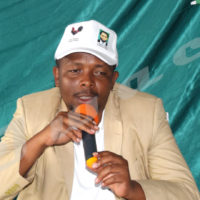
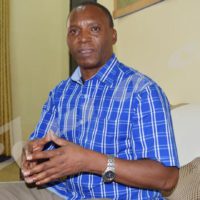
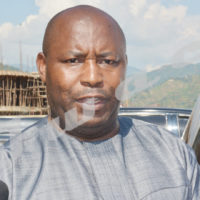
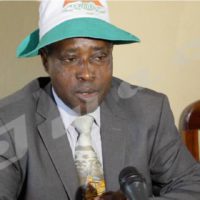













 IWACU Open Data
IWACU Open Data

